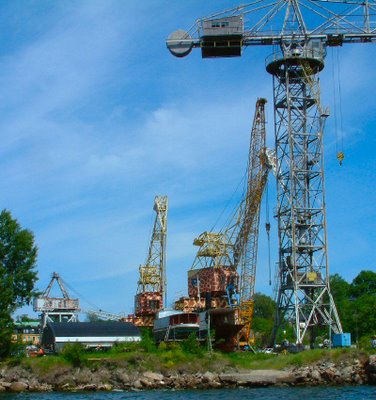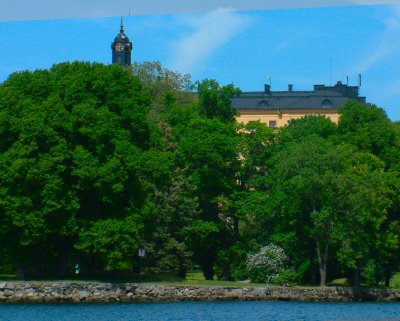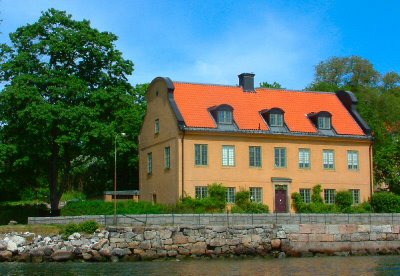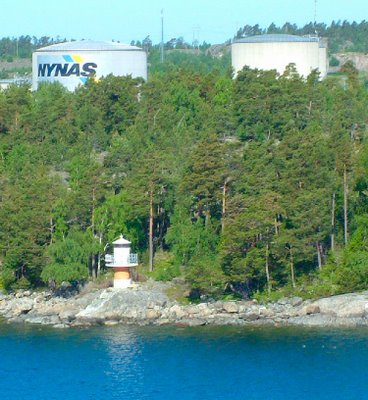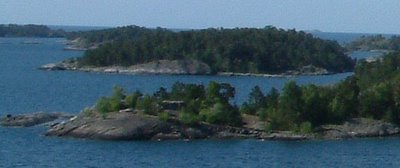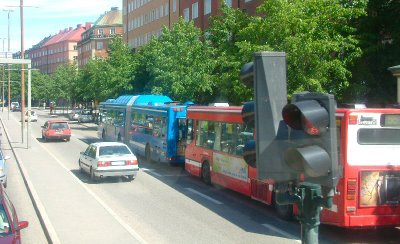
On the road out of Stockholm we pass a number of bendiebuses. These double-jointed buses seem to be common in many parts of Europe, but are probably too long to be seen on narrow British roads. Some of them are labelled Biogasbus.
At Nynäshamn, before catching the tender back to the boat, I look in a small hut which belongs to the Nynäshamn Tourist Information. I was wanting to get a present for Christine and perhaps a souvenir. One item priced at SKr150 and another at SKr55 attract my attention. They seem a little over-priced in any case. I ask if I can have the two for SKr200 as I don't want to get any small change. They refuse my offer so I put the banknote back in my pocket. I'll convert it into Norwegian kroner later in the trip.














